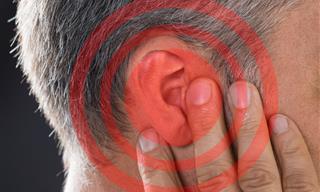By paying attention to the sound of your cough, along with any accompanying symptoms, you can often identify the cause, which can then be used to help you recover quickly. Below are seven common reasons for a cough, and what you can do about them.
1. Postnasal Drip
Having a cold or allergies can cause mucus to drip down your throat. This postnasal drip can touch nerve endings, leading to either a dry or wet cough. A cough that is being caused by a postnasal drip will usually be worse at night, and might be accompanied by a scratchy feeling in the back of your throat. If it’s allergies that’s causing this postnasal drip, you may also have itchy eyes and sneezing.
If you have postnasal drip accompanied by congestion, cold symptoms, pressure in your face, and thick green or yellow mucus, you might have a sinus infection. If this is the case, irrigating your sinuses might help.
Back in 2007, a study carried out by the University of Michigan found that saline irrigation was more effective at decreasing nasal congestion than saline sprays. This appears to work by thinning mucus, decreasing the swelling in your nasal passages, and removing any debris, allergens, and bacteria from your nose.
To make your own saline solution, add one teaspoon of sea salt to one pint of distilled water.
2. Asthma

A dry cough along with a rattling or wheezing sound is often indicative of asthma. With this condition, your airways become inflamed, leading to coughing, wheezing, and difficulty breathing. Coughs caused by asthma are usually worse at night or while exercising. It can also be accompanied by chest tightness, fatigue and shortness of breath.
If you have asthma, it might be a good idea to look into the Buteyko Method which shows you how to bring your breathing back to normal. When you’re breathing normally, you get much better oxygenation of tissues and organs.
3. GERD (Gastroesophageal Reflux Disease)
When food passes into your stomach from the esophagus, a muscular valve called the lower esophageal sphincter (LES) closes, preventing food or acid from moving back up. GERD, also commonly known as acid reflux, occurs when the LES relaxes inappropriately, allowing acid from your stomach to flow into your esophagus.
GERD may cause a dry, spasmodic cough, that is likely to worsen when you’re lying down or eating. You may get heartburn as well, but in 75% of cases, a chronic cough is the only symptom.
GERD is thought to be caused by having too much acid in your stomach, which is why acid-blocking drugs are often prescribed or recommended. However, the problem can also be caused by having too little acid in your stomach, which is why drugs such as proton pump inhibitors typically just make the issue worse. Ultimately, the answer to heartburn and acid indigestion is to restore your natural gastric balance and function.
Eating processed and sugary foods is a surefire way to exacerbate GERD, as this will upset the bacterial balance in your stomach and intestines. Instead, you should eat a lot of vegetables and other high-quality unprocessed foods. You should also consider eliminating triggers from your life such as alcohol, caffeine, and nicotine products.
4. Chronic Obstructive Pulmonary Disease (COPD)
If you’re chronically coughing up lots of mucus, this might be due to COPD. Typically, the cough will be worst in the morning and ease throughout the day. You may also experience shortness of breath, fatigue, wheeziness, and chest tightness.
Smoking is a major contributor to COPD, which includes chronic bronchitis and emphysema. With emphysema, the air sacs in your lungs lose their elasticity. Chronic bronchitis occurs when there is swelling in the linings of your lungs and it constrains your breathing.
5. Medication-Related Cough

ACE inhibitors, which are used to treat high blood pressure, can cause dry coughs in about 20% of patients. If you notice you have a dry cough a few weeks after starting this type of medication, it could be to blame.
While you shouldn’t stop taking blood pressure medication without consulting your doctor, it’s important to be aware that high blood pressure can often be remedied with lifestyle changes. Therefore, if you’re diagnosed with high blood pressure, dietary strategies can help control it.
One of the common underlying causes of high blood pressure is related to your body producing too much insulin and leptin in response to a high carbohydrate and processed food diet.
Therefore, if you suffer from high blood pressure, you should do your best to avoid processed foods.
6. Pneumonia
This starts out as a dry cough and progresses into a wet cough with green, yellow, or red mucus. The cough might be accompanied by chills, fever, trouble breathing, or pain when coughing or breathing in deeply. Anytime you cough up excess mucus, spit it into the toilet rather than swallowing it as this can cause stomach irritation.
Most people who have pneumonia can recover at home by drinking lots of fluids and getting adequate rest. However, in severe cases in the elderly or young, pneumonia may require hospitalization to receive breathing treatments, fluids, and oxygen therapy.
7. Whooping Cough (Pertussis)
Whooping cough causes a severe cough that ends with a whooping sound as you breath in. The Center for Disease Control and Prevention (CDC) declares that the best way to prevent whooping cough is to get vaccinated, but this deserves a closer look. CDC data shows that 84% of children under the age of 3 have received at least four shots for whooping cough, and yet, despite this high vaccination rate, whooping cough is still prevalent among both vaccinated and unvaccinated individuals. Therefore, this would suggest that the vaccine is ineffective.
If you think you might have whooping cough, you should seek medical attention right away. However, there are some things you can do that may keep it away:
• Avoid mucus-forming foods such as milk, flour, eggs, and sugar.
• Keep your home well-ventilated and free of smoke.
• Keep well hydrated.
• Rest and avoid exertion.
• Massage essential oils with a carrier oil (such as coconut oil) into your chest.
• Heat a pan of water to just boiling point, then add a couple of drops of thyme. Breathe in the steam from the pan.
Source: thescienceofeating
Images: depositphotos
 Go to BabaMail
Go to BabaMail
























